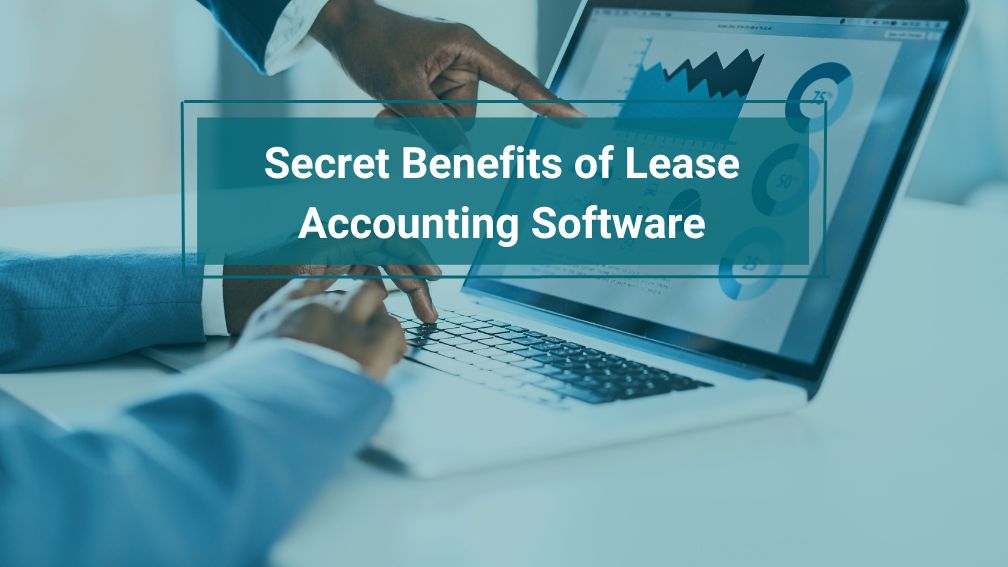The Secret Benefits of Lease Accounting Software
Last Updated on September 25, 2024 by
Lease accounting can be a complex and time-consuming task, especially for companies with a large number of real estate or equipment leases. The new lease accounting standards, ASC 842 and IFRS 16, have made the process even more challenging for organizations for companies with numerous commercial properties in their portfolio. Fortunately, there are benefits of lease accounting software that can simplify the process for companies and CPA firms.
What is ASC 842?
ASC 842 is the new lease accounting standard issued by the Financial Accounting Standards Board (FASB) that became effective for public companies on December 15, 2018, and for private companies on December 15, 2021. It replaces the previous standard, ASC 840, and requires companies to recognize lease assets and liabilities on the balance sheet for most leases with a term of more than 12 months. Under ASC 842, companies must also disclose additional information about their lease obligations in the footnotes of their financial statements.
What is IFRS 16?
Similar to ASC 842 in the US context, the goal of the new IFRS standard was to bring financial visibility into all lease liabilities onto the company balance sheet. The critical difference between ASC 842 is that IFRS 16 is the international accounting standard, whereas ASC 842 is the US-only standard for lease accounting.
Why is Lease Accounting Software Important for Compliance Standards?
Complying with the latest lease accounting standard ASC 842 can be a complex and time-consuming process for finance professionals, especially for companies with large lease portfolios. Lease accounting software (a cloud-based solution) can automate the lease accounting process and help companies comply with the standard more efficiently than if using Microsoft Excel. Here are some reasons why lease accounting software is important for compliance:
- Increased accuracy: Lease accounting software can improve data integrity and help companies by accurately calculating lease assets and liabilities, reducing the risk of errors and inconsistencies in your finance data.
- Improved efficiency: Lease accounting software can help digitize lease data and automate lease accounting processes, reducing the time and effort required to comply with the standard.
- Better compliance: Lease accounting software can help companies comply with ASC 842 and other lease accounting standards, reducing the risk of non-compliance penalties.
- Enhanced transparency: Lease accounting software can provide greater transparency into lease data, allowing companies to make better-informed decisions throughout the lease lifecycle.
- Cost savings: Lease accounting software can help companies reduce the cost of compliance by automating lease accounting processes and reducing the risk of errors.
- Data Security: With your lease data no longer in spreadsheets, you can rest knowing your lease data is safe in a central and accessible hub with customized restrictions to your organization’s needs.
Key Features of Lease Accounting Software
Lease accounting software typically includes the following key features:
- Lease management: Lease accounting software can help companies manage lease data, including lease agreements, lease terms, rental obligations, rental payments, and lease payments.
- Lease calculation: Lease accounting software can help companies calculate lease amortization schedules that produce the right of use assets and liabilities
- Reporting: Lease accounting software can generate reports, including lease accounting journal entries, lease payment schedules, and lease accounting disclosures.
- Compliance monitoring: Lease accounting software can monitor compliance with ASC 842
Secret Benefits of Lease Accounting Software
Outside the numerous benefits listed above, there are also a handful of secret benefits to leveraging a cloud-based lease accounting solution, including:
- Better Lease Management A lease management software provides you a 360-degree view of all contracts and can help manage your critical dates or clauses better. This allows you to save time on the administrative side of lease management.
- Better Departmental Collaboration Having decentralized information can become a headache for companies, especially if there is a lack of a single source of truth. Leveraging a lease accounting software eliminates manual tasks as well as the risk of not being able to get access to the necessary information needed to perform your job duties. It also reduces the risk that the information is stale as everyone would be collaborating within one tool.
- Better Budgeting When you have access to all future financial information at your fingertips, budgeting for real estate spending, which is typically the second largest expense for companies, becomes a breeze. In addition, the real estate team will feel more prepared to enter negotiations as they will have a clear picture of all moving lease parts.
- Better Decisions Being able to immediately access the information needed, leadership teams can make better decisions faster with seamless management. Instead of tracking down information they need, they are able to make more proactive decisions, especially when the lease accounting software has built-in alerts.
In conclusion, complying with the ASC 842 can be a complex and time-consuming process for companies. However, lease accounting software can simplify the process and provide numerous benefits for companies, including increased accuracy, improved efficiency, better compliance, enhanced transparency, and cost savings. By leveraging lease accounting software, companies can reduce the risk of non-compliance penalties, make better-informed decisions about their leases, and ultimately, drive business success.
